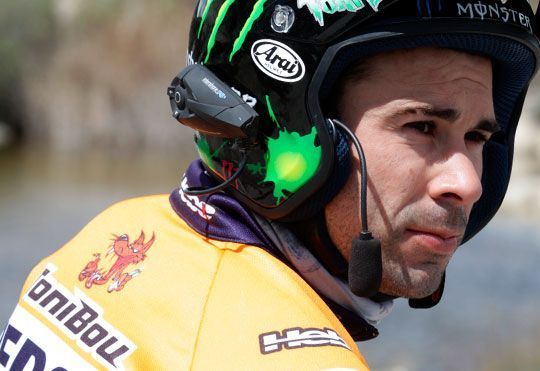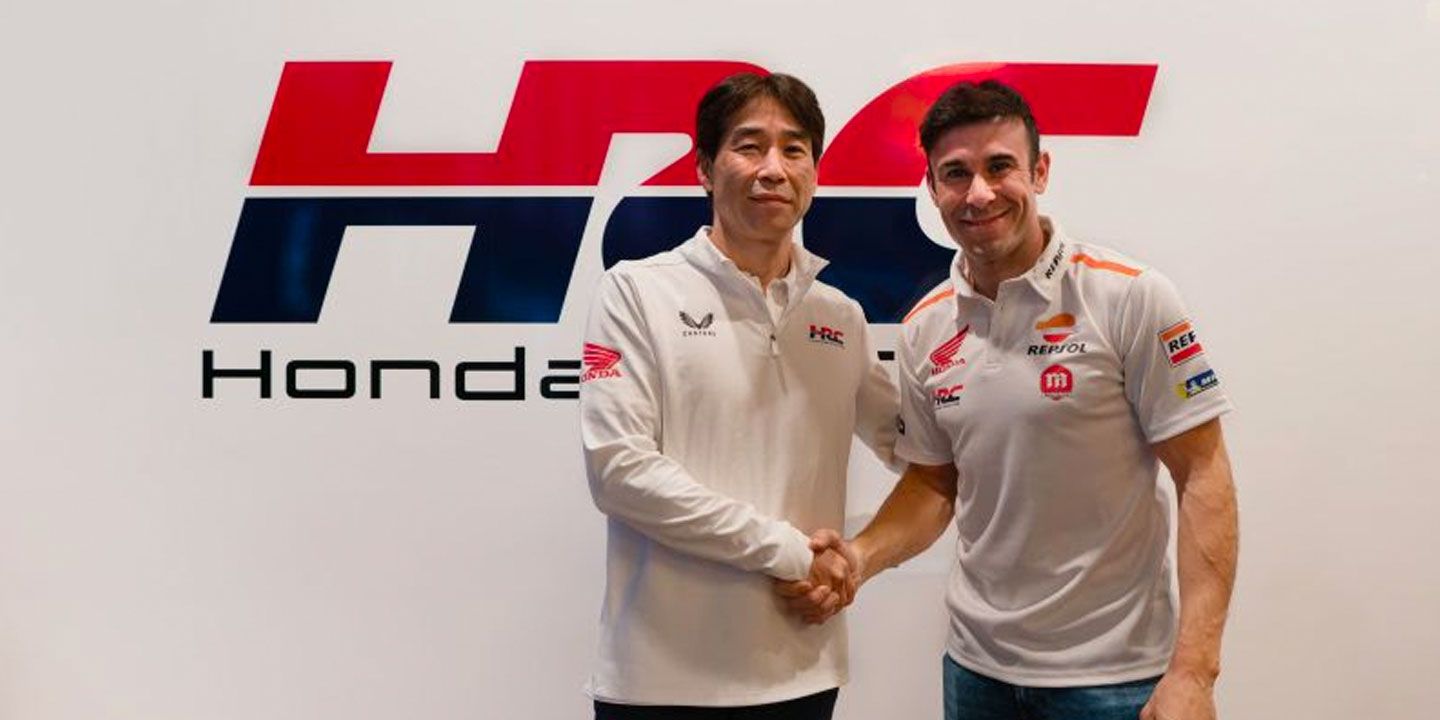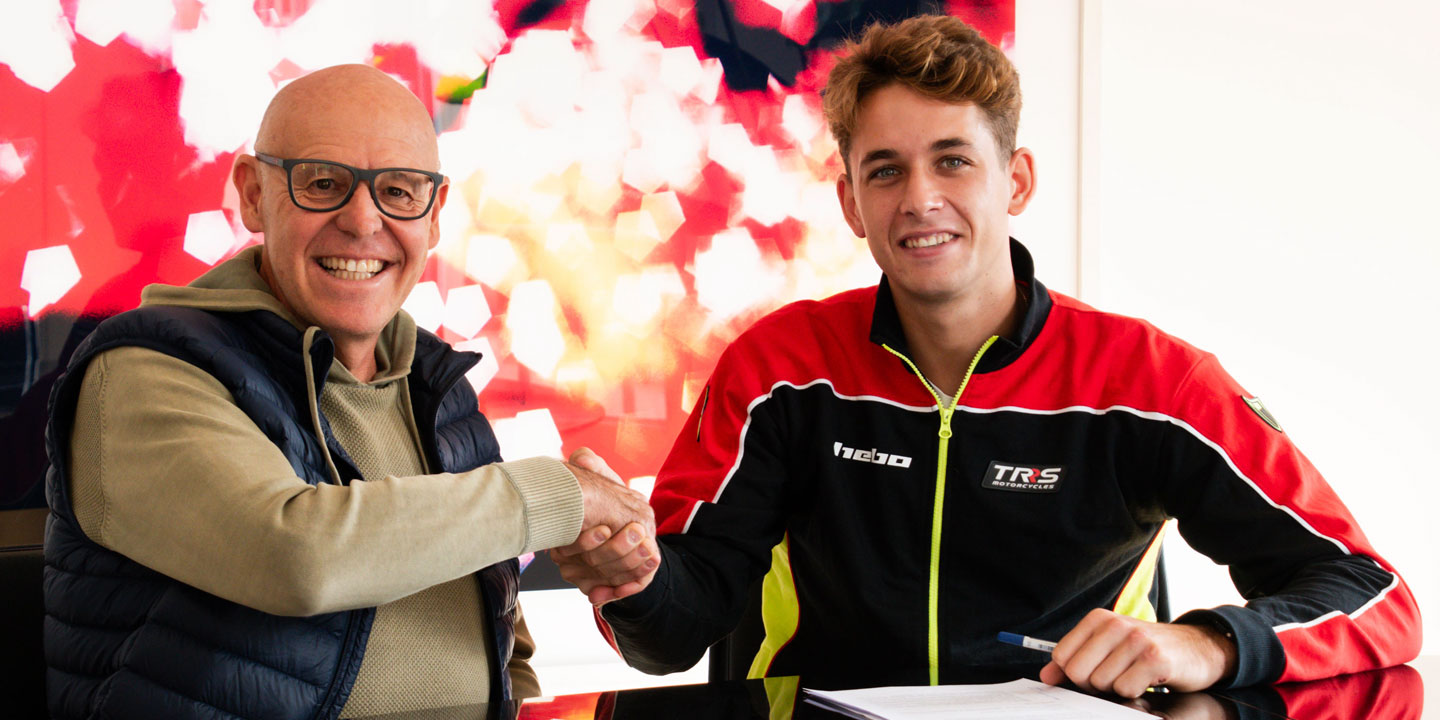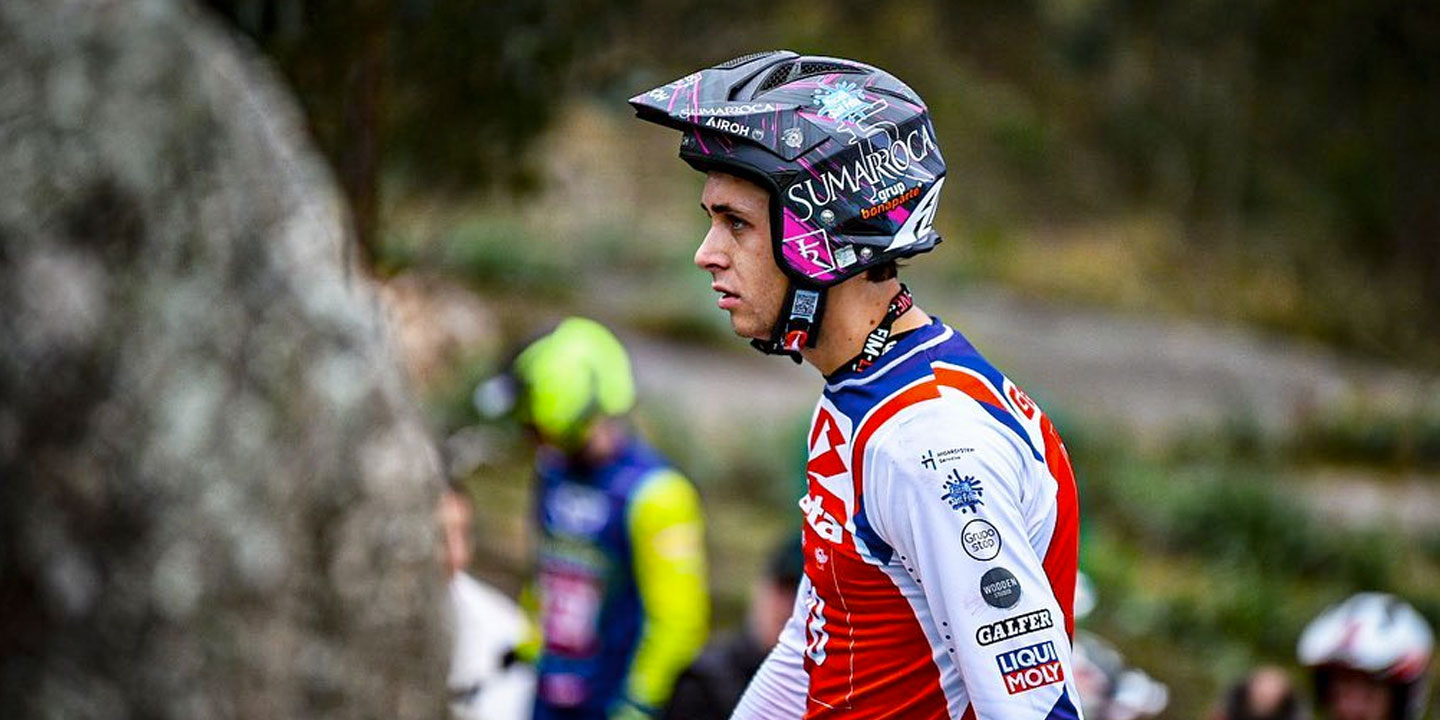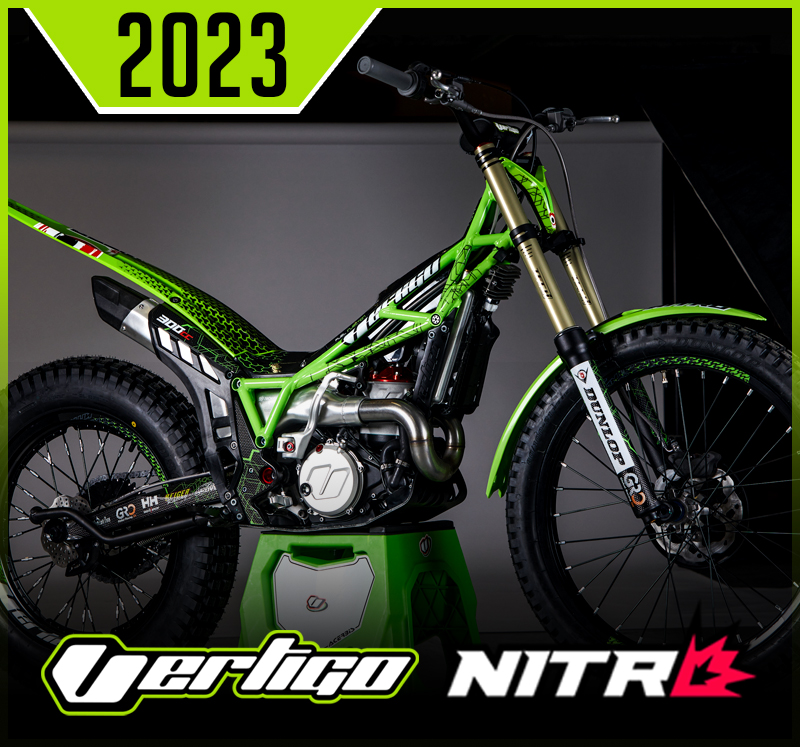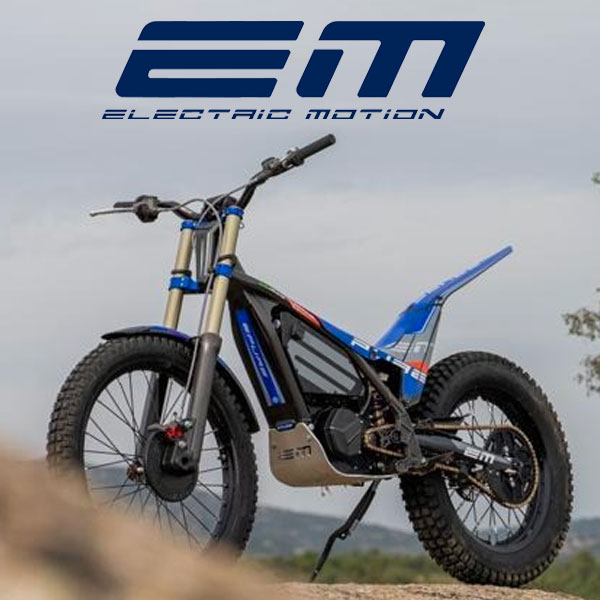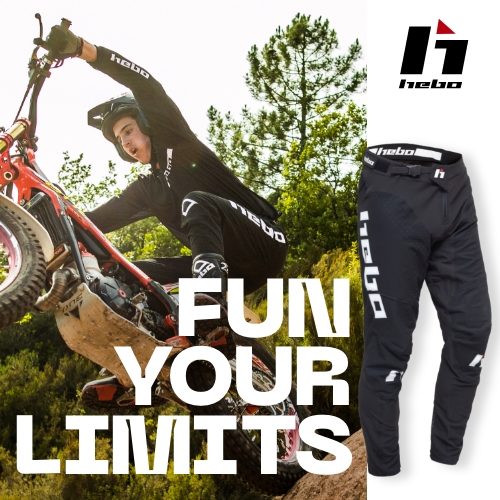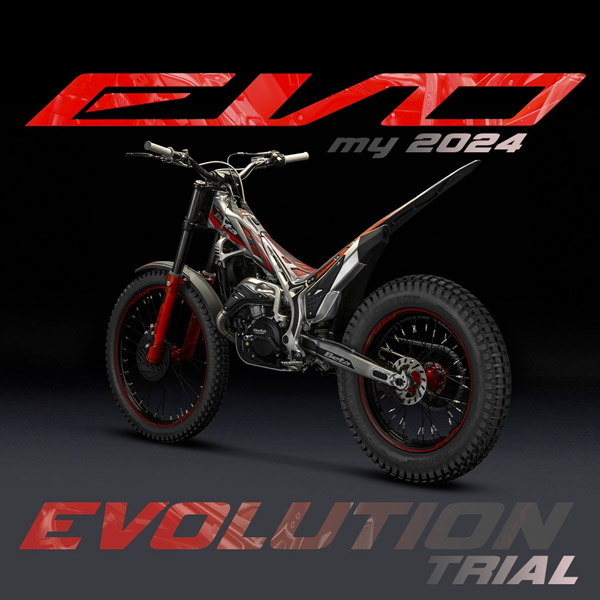
The whole of this greatness is what makes the public vibrate, what makes a stadium squirm with emotion when overcoming that obstacle where others do not reach and whose proximity makes everything much easier for those of us who professionally dedicate ourselves to this sport.
Personally, I was lucky enough to experience first-hand one of the most important moments of his sporting career: the title of Spanish Champion 2006. His tears of emotion, after beating Raga on his Beta Rev3 in a heart race, come to mind every time I see Toni. And I always have the same thought: I hope he never loses that humility and connection with those of us who admire him for everything he brings to this sport.
This same humility is what has allowed our Biketrial collaborator, Álvaro López, to interview him for more than half an hour with another Trial institution, in this case on pedals , for more than a decade: Raúl Gutierrez.
We leave you with some unique reflections by Toni Bou, inviting you in a second installment to know the impressions of Raúl Gutierrez.
*
“I always celebrate a title as if it were my last, you never know if you can win it again”
* “We are pushing for the bike to be changed; I know they’re going to put something out, but there’s still a long way to go. When I arrived in Montesa, there were 15 Japanese people working, then 5 and now 10. It’s a small evolution, but they’re back for the work“
*
“I prefer the 4T engine because of its answer below. It allows me to ride on less gas and suits my style better.”
*
“Honda has the philosophy of making a bike to win… In the end they sell so many bikes that what they want is a world title.”

Photos: David Quer / archive / FIM
Interview: Álvaro López
TRIALWORLD: How do you define yourself as a rider?
TONI BOU:
I’m a very aggressive rider, with a riding that comes from the trial bike and I think that’s what defines me the most, aggressiveness and using the technique of the bike on the bike.
TW: What technical virtue would you highlight?
TB:
Maybe the technique of the trial bike, I’m the rider who has passed it the most from the bike to the bike and who has evolved it the most and that’s what I think helps me make the difference
TW:
And your weak point or your point to improve?
TB: Wet racing is the weakest point I have. For example, in races like Japan, where there is a lot of mud and the bike sinks almost to the chassis, that’s where I have the most problems and it’s where I have to work the most. This is because I don’t have places to train this kind of terrain, I’d have to go to England or somewhere like that.
TW: Tell us about the worst moment you’ve experienced in trial
TB: Like all pilots, injuries, When I broke my leg, it was a moment when everything was evolving very well that it seemed that everything was going to be very easy and the moment when you break, that you are stopped for a month or two, then recovery, get back on the bike… It’s all very difficult.
TW: Why trial? How did you meet him and why did you get into it?
TB: Well, normally because at home it is known, it is practiced in my case my father and all motor sports I think is the same, someone from the family, someone you see up close because he is very close. Hard to watch on TV And I think in all cases of all the drivers it’s more or less the same.
TW: In an interview we heard that you started cycling because you thought you were better. However, did you switch to the bike because you liked it the most? Why did you think it was easier to make a living from it?
TB: I switched to the bike because I liked it better, of course. At first I liked the bike more, when I was 6 years old I shared it I realized that I could do many more things with the bike, and I told my father that I liked the bike more and that I wanted to compete on the bike. My father agreed. I had a bike at home, I was going out, I liked it a lot but in the end with 11 or 12 I was improving, I had more strength, I liked riders a lot, I decided to share it for a couple of years that I didn’t know what to do and in the end I opted for the bike.
On the bike I like to ride a 26 inch, because I don’t mess around changing with the bike. The 20″ is too small for me, although now I’ve tried the 24″ and I like it better than the 26″.
TW:
What are the goals of a rider who, like you, gets here by winning everything?
TB: Well, the goal is to continue enjoying this. It’s very important to be able to make a living from something you like, I feel lucky for that, to be able to practice my favorite sport and be a professional at this. And apart from that, keeping the motivation and as long as you are motivated and want to improve (which I think you can still improve a lot) they are super complicated and super difficult sports in which you are always improving, so as long as there is motivation it is always good.
TW: What is the best thing that Trial has brought to your life?
TB: The best thing is to enjoy day by day, day by day to enjoy in the mountains, enjoy the landscapes, enjoy riding a motorcycle… And it’s a good thing For me it’s everything, it’s my favorite sport, I enjoy practicing it a lot, Also with the trial bike, so as I said, to be able to make a living from this is to be able to do what you like every day.
TW:
Do you feel an evolution towards yourself since you won your first and second World Cups until now?
TB: Yes. It is clear that yes, trial is a sport that if you win a world championship you gain importance, if you win two or three you win another and if you win 5 or 6 as I have won in recent years, even more. Obviously they are sports that cannot be compared with others and that is why they require you to be world champion many times to be a little recognized.

TB: 4 times. The reason is that since 2007 with 4 strokes I have won all the world championships I have competed in. I think the 4-stroke has an amazing response down and For me, going low on throttle is very important Since the technique of the bike there is no engine, so by going with less gas I am much calmer, I have more time to do things and it is what suits my riding more.
TW: Do you think that with a 2T you would have the hegemony you have now? Or do you think Q4 plays a big role in your victories?
TB: The bike is incredible, that’s very clear. Without this bike you don’t know what’s going on
I would be doing. I’d be in front for sure, but maybe not this way. Not because the bike is far superior to the others but because we are a team that goes very well, the bike goes in a way that I like a lot and I have adapted very quickly.
TW:
What’s the bike you’ve been most fond of?
TB: The 2007 bike, the first Montesa bike I owned. I remember it a lot because of the color it had, which was different, aluminum, and because of the first World Cup, obviously. It’s unforgettable for me.
TW: Do you keep it?
TB: I’m going to save it. The Japanese won’t give it to me until 15 years have passed, maybe so that nothing can be copied, but they have told me that they are going to give it to me.
TW: Montesa has been riding the same bike for 7 years. We know yours is very different. When will there be a change? Are you pressuring the Japanese?
TB: There’s pressure on you, but it’s hard. It’s a complicated moment, I know he’s going to get something out of it, but there’s still a long way to go. Neither for next year nor for the year after, at the moment it is what it is, the Japanese is what they have. Maybe in 2 months they change you and they do it but they have to change the chip and now they have returned to work with the trial bike with our team. When I arrived we were 15 Japanese working, then 5 now 10, it’s a small evolution but they are back for the work.
TW:
Maybe our opinion about Honda for the Trial is bad, because they have Bou and they sell for Bou, but they don’t make bikes for the amateur.
TB: Well, they have the philosophy of making a bike to win. They win and it’s Honda. In the end, if they spend a lot more money on making a motorcycle, they will do it; But if they are winning and they are going to sell few bikes, regardless of whether they make a new one, in theend they sell so many bikes that what they want is the world title.

TB: The truth is that my goal was to be world champion one year; More than a goal, it was a dream. I’ve managed it, even repeating it and from here it’s clear I’m going to try to win as much as I can, not forgive a single title and not get injured, which is the most important thing. From here, whatever comes.
I always say the same thing when I’m asked “How will you celebrate?” Well, as if it were the last, because it’s a World Cup, you never know if you’ll come close to winning it again. You never know if it’s going to slip away from you by a point. A lot of times it seems like you earn more than enough and that it’s easy and it’s never easy. There are many hours of training, a lot of pressure, the truth is that when you take advantage everything changes, you ride much easier and I am aware that when someone comes and is closer, it will make me ride in a different way and I cannot go as calmly as I am now.
TW:
How do you motivate yourself?
TB: Luckily I motivate myself, I don’t have any… I’m very competitive, I like to win wherever I go and What I try to do to motivate myself is try not to think 2 or 3 weeks ahead. I’m thinking about the weekend and I’m training for this weekend and I’m focused on winning the next race.
If you think about it: Spanish Championship, well it’s not very important, the most important thing is the World Championship, the World Championship, well this race won’t go well for me because this or that. It’s best to try to give it your all every weekend and it’s the way to be more motivated during the week.
TW:
It gives you pressure to know that everyone is going to see Toni Bou, his style, his way of going… If so, how do you take it off?
TB: It’s clear that it’s pressure, we have to try to give our best, we have to try to make people enjoy themselves. If I pass the normal areas without doing them with a wheel, if I don’t risk a little more than the others, people are disappointed but in the end I’m here to compete, do the maximum possible and make people enjoy it, that’s what I try to do, I always do what I can and with that you stay calm.
TW:
Do you like the pressure of being No. 1 everywhere
?
TB
: On the one hand it’s clear that it’s very nice and on the other hand sometimes it bothers me a bit but well, I think it’s positive, in the end the day I lose it I’ll think: what a good time it was when everyone came to see me, for sure.
TW: Do you have any pet peeves? What idols did you have?
TB: Quite a few idols, the most typical. Lampkin, Tarrés, Ot Pi, César Cañas, Dani Comas, Guti was also followed. You look at all the big ones, you don’t look at one in particular; you look at Guti’s technique; in Dani’s pulls, but maybe I’ve had more idols on the trial bike than on the bike. I think that’s because when you get on the bike you get older and it’s different. When I was younger, you remember the bike better and I remember going to see other categories, especially to see how Guti was doing with Benito.
As for hobbies, I don’t have manias, I’m not a maniac, it’s bad luck to be ( laughs).
TW:
Don’t you wear the same gloves if you win or stuff like that?
TB:
No, I’m pretty of a mess with everything…
TW:
We saw in a photo that you were wearing your boots torn in an indoor and we thought that maybe…
TB: (laughs) No, no, it’s not that at all, I would have broken them heating up or I wouldn’t have noticed and I would have taken some broken ones. One day they kill me (laughs). I’m quite a mess, I’m telling you, I’m always in a hurry, I forget things… It’s a good thing I’m on the team I’m on, they have everything (laughs).
TW: Jordi Tarrés marked an era. Many people consider that another one began with you, do you consider that there is a change of era with you?
TB: It’s different. What Jordi invented… I didn’t invent anything, I’ve improved it. What is clear is that the level that existed before is not the one that exists now, Raga, Jeroni, Cabes, Fuji… there are very, very good people and at the time it was different and it was easier to make a difference, but it’s clear that Jordi marked an era and I think that no one is ever going to change that, because he changed trial in a spectacular way.
TW: Motorcycle trials are gaining more and more momentum, what needs to be changed to keep it evolving? Maybe abolish the outdoor?
TB: To make it easier for the public, for the televisions to come… You don’t get that overnight. But I think that the outdoors has to exist , it’s clear that the whole race is impossible to follow, but to put a group of 10 areas together even if you separate others so that there is a circuit. That they can follow it easily, easily accessible, fast for the public…
TW:
High-level sport is spectacle… If it’s a spectacle and seeing the indoors this is superfluous and you are a recognized indoor rider, what do you think?
TB: Because the outdoor is poorly done; If the outdoor is well done it would be the rod too, it would never be like an indoor but for people who have done trials all their lives it is what they like and it would be a way to make it easier for other people. Nowadays an indoor is very easy to follow and understand and an outdoor is the opposite, you don’t know anything, you don’t know anything, the hanging areas, the public to see it… It’s horrible… To look for the easiest, to make it easier and from there to work for the television stations as well.
TW:
What percentage of importance does the bike have in your riding and how much do you use it?
TB: I haven’t used the bike much lately due to injuries but what is clear to me is that when I ride a lot I ride better on a motorcycle and that is super positive. It has a very high percentage, 70% I don’t know but what is clear is that it has 90% in evolution. Everything I get new is always from the bike to the bike, with the riding of the bike you can perfect and
Wet, muddy or dry, but in the end, when you evolve, that’s when you pass things and techniques from the bike to the bike.
The bike is much clumsier than the bike, but a lot, I take the bike and in summer I take it more normally than I have holidays and in 15 days I ride a bike every day. Then when I take the bike, even though I’m better, I feel awkward, because you can’t go to that place, turn, come back and pull and do everything the same. The bike, the grace or the misfortune it has, is that doing two identical things in a row is super difficult if the level is high of course, if it is lower… Depending on your level, you do it more often, but when the level goes up, it’s different.
Follow us on Twitter and Facebook
